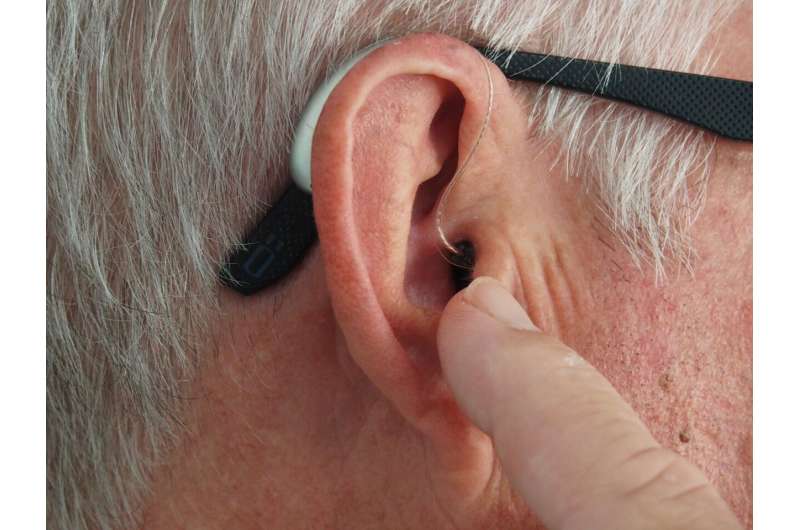Innovative Brain-Inspired Algorithm Enhances Hearing Aid Performance in Noisy Environments

Navigating noisy and crowded settings like bustling bars or lively social gatherings has long been a challenge for individuals with hearing impairments. Background chatter and overlapping conversations, often referred to as the 'cocktail party problem,' can make it difficult to focus on a single speaker, even for those equipped with hearing aids, which frequently struggle to distinguish relevant sounds from background noise.
Researchers at Boston University have developed a groundbreaking brain-inspired algorithm that significantly improves the ability of hearing aids to filter out interference and isolate specific conversations within noisy environments. This novel algorithm demonstrated an impressive 40-percentage-point increase in word recognition accuracy during testing, a remarkable improvement over existing technology.
Kamal Sen, the lead developer and associate professor of biomedical engineering at BU, expressed enthusiasm about the results, noting that such an increase in performance is quite rare. The algorithm, named BOSSA (Biologically Oriented Sound Segregation Algorithm), mimics neural processes involved in auditory attention and sound source separation by leveraging spatial cues like volume and timing to enhance or dampen specific sounds.
The significance of this innovation is underscored by the total number of individuals affected. Estimates suggest nearly 50 million Americans experience hearing loss, and by 2050, around 2.5 billion people worldwide may face similar challenges. The ability to effectively communicate in noisy settings is one of the most common complaints among those with hearing loss, impacting social, professional, and daily interactions.
Current hearing aid solutions incorporate noise reduction features and directional microphones, but their effectiveness remains limited, especially during complex acoustic scenarios like cocktail parties. The BU team benchmarked their new algorithm against industry-standard methods, which showed minimal or even negative effects on sound clarity.
Sen has patented BOSSA and hopes to partner with hearing aid manufacturers, especially as major tech companies like Apple enter the market with products capable of clinical-grade sound processing. This innovation could force a paradigm shift in hearing aid technology, fostering rapid advancements.
At the core of BOSSA is a detailed understanding of how the auditory system processes sounds. Sen’s extensive research into neural circuits involved in sound encoding—including inhibitory neurons that suppress unwanted noises—inspired the algorithm. Its focus on spatial and temporal cues enables it to segregate sound sources more effectively, akin to internal noise-canceling mechanisms of the brain.
To validate its real-world applicability, behavioral studies involving participants with sensorineural hearing loss were conducted. Results demonstrated that BOSSA significantly outperformed both no-algorithm and current standard algorithms, especially in challenging settings. Additionally, the team is working on integrating eye-tracking technology into future versions to further enhance user focus.
Beyond hearing aids, the principles behind BOSSA have potential applications for other neurological and behavioral conditions, including ADHD and autism, where sensory processing and attention regulation are affected. Sen emphasizes that these neural circuits are fundamental to attention mechanisms, which could translate to broader benefits in various populations.
Stay Updated with Mia's Feed
Get the latest health & wellness insights delivered straight to your inbox.
Related Articles
Innovative Robotic System Tested for Throat Cancer Surgery at King's College London
A new robotic system developed by CMR Surgical has been successfully tested for transoral throat cancer surgery at King's College London, promising safer, more efficient minimally invasive treatments.
Genetic Mutation Influences Iron Deficiency in Crohn's Disease Patients
A groundbreaking study reveals how genetic mutations in PTPN2 impair iron absorption, leading to anemia in Crohn's disease patients, paving the way for personalized therapies.
Research Finds Harmful Chemical Created by Vaping Cannabinoid Mixtures That Can Damage Human Tissue
A new study reveals that vaping cannabinoid mixtures can produce a toxic chemical that destroys human tissue, highlighting health risks associated with vaping CBD and other cannabinoids.



